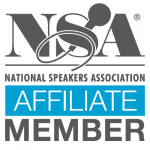On Monday, Comedy Central aired the Charlie Sheen roast, officially capping a yearlong Twitter-fueled saga and certifiable personal and public meltdown. There is absolute truth to the old adage, ‘there’s no such thing as bad publicity,’ but there is another massive aspect to this cliché notion: the nature in which you handle yourself amid exposure on negative pretenses is as important as the exposure itself. Sheen rode the hate-train all the way home, but missed the bank on his departing route. His multi-million dollar an episode acting role was canned, his image is tarnished, and his career is barely detectable amongst the flotsam and jetsam that became his interviews and Internet rants. Only if you intelligently maneuver negative publicity can it prove a positive.
Owning negativity means never apologizing for what you believe in. If your editorial is garnering adverse feedback because of content, that is a good thing! Countless individuals have made careers based off of the negative; Howard Stern and Ann Coulter immediately come to mind. Although on completely opposite sides of the social spectrum, they share a common denominator: they’re not afraid to push the envelope. Doing something new and refreshing often means ruffling a few feathers along the way. Your constituents may not agree with you, but they will respect you for not wavering in your convictions.
What Charlie got wrong was gunning full-steam on a non-respectable premise with a colossal side-helping of ego. Everyone was wrong, he was right: end of story. Negative publicity fosters debate; Composition 101 teaches you that fashioning a credible argument involves acknowledging the opposition, and then refuting it. A dose of humility goes a long way. If scores of individuals find your viewpoints conflicting with their own, presenting them in a palatable manner encourages discussion and provides you exposure.
One glowing example of using undesirable press to your advantage was the way David Letterman handled his widely publicized blackmail scandal in 2009. Instead of hiding behind his many handlers or having his agent release a cryptic press release denying the ordeal, Letterman stood in front of the cameras on his own show and admitted his wrongdoing. After a wave of initial backlash, The Late Show’s ratings saw a considerable increase. Dave’s perfidy became a mere afterthought, and many respected him more for owning up to his mistakes.
‘Grabbing the fan’ is a unique way of looking at it. Negative publicity has a way of spinning out of control if you don’t conduct yourself in an agreeable fashion. Stick to your guns in regards to your message, but ensure that you’re not alienating your base or turning off those who might share your views. Charlie Sheen may have been the subject of a primetime roast, but because of the repugnant way in which he went about his business, it’s his career that’s really cooked.
-Carter Breazeale
PR/PR Public Relations






Leave a Reply